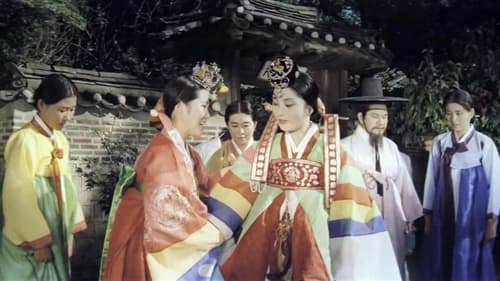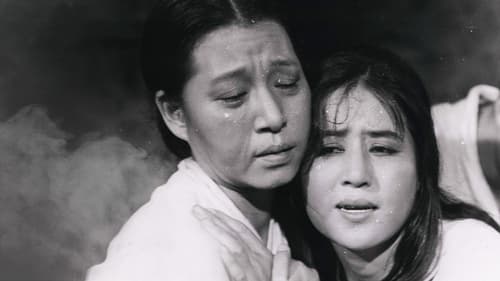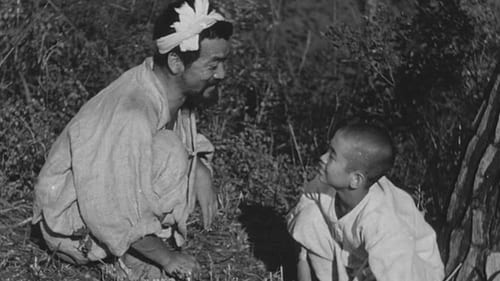
Byun Ki-jong
出生 : 1895-07-29, Seoul, Korea
死亡 : 1977-05-01
略歴
Born Byun Chang Gyu on the 29th July 1895, in Seoul, Korea. He began to use the stage name Byun Ki Jong when he began theatre in 1912. In 1913 he met with Yi Gi Se who was a pioneer in the theatrical movement. In 1919, he joined the Chosun Literary Association of Yi Sensei, and starred in the serial play "Jigi". At this time, he was a young man in his mid-twenties, but he worked as a labourer and became a professional actor. He also performed in theatre performances, radio plays, and theatre companies.
During the time of the US Military Government, he became chairman of the theatre of the Korea Theatre Association. However, as the US military 's left - wing oppression intensified, the left - wing connections of the theatre system became more and more common, and the free theatre stopped performing.
In the Republic of Korea, the actor actively participated in the theatre scene. He made his on screen debut in "A Hometown in Heart" in 1949. In 1956, he was selected as a member of the Korean Academy of Arts. He was a veteran of the theatre industry, holding roles including deputy director of the Korean theatre arts department, advisor to the Korea Theatre Association, and director of the National Theatre Company. In 1973, he received the National Medal Mugunghwa.

Two traditional stories. In the first, a girl marries the bravest man in the village so she can send him into a monster's lair to collect an mystic herb which can save her father's life. In the second story, even death cannot prevent a devoted wife from helping in her husband's success.

His parents captured by the Baekje armies, prince Eo-jin infiltrates the enemy castle alone to seek revenge. His plot is ruined when he falls in love with a princess there and is forced to choose between betraying his parents and nation or the woman he loves.

Maeng Hyo-won (Maeng Jin-sa's uncle)
Jinsa Maeng's daughter is contracted to marry a nobleman's son, however, Jinsa Maeng is upset when he hears about a rumor that the fiance of his daughter is lame. Finally, he decides to take on the idea of arranging his maid to take his daughter's place in the wedding.

Prince Yeonsan-gun turns into a tyrant out of grief for his mother's death. He orders beheadings of all the officials who displease him or who advised the previous king to depose the queen. He becomes crueler by the day. But in 10th year of his reign, he is kicked out of the throne and dies a tragic death.

A historical drama about Yeonsangun of Joseon as a prince trying to restore the status of his mother, the deposed and executed Queen Yun.

Yeong-shin (played by the Choi Eun-hee–Shin Sang-ok’s wife) and Dong-hyeok (Shin Yeong-gyun) graduate from college with a cause. They plan to bring education and modernization to farmers living in the rural area of their birth. When they arrive, the pair immediately gets to work, Dong-hyeok builds a village hall and starts aiding the farmers while Yeong-shin tries to gather the children to form a school. However, the villagers at first resent and resist the pair. It is not until one child, Ok-bun, takes the inititive and and learns to read under Yeong-shin’s care that the villages trust the pair and allow their children to be taken from the fields and taught reading, writing and math.

Jo Gwang-pil
Iljimae's parents were killed due to a conspiracy when he was young. Many years later he became a chivalrous robber, robbing corrupt officials and helping the poor. He eventually manages in taking revenge for his parents' deaths. But the police start to chase him, and he hides himself at a gisaeng's house. The gisaeng was his ex-fiancee. She also lost her parents to a conspiracy. She begs Iljimae to stay with her, but he leaves to do what he has to.

Manager
A middle-aged man is laid off from work but is too proud to tell his family. His children, however, learn of the situation and take jobs of their own to help him save face.

A 10-year old girl in a mining town, separated from her family, keeps a diary which becomes a best-seller.

The son of a freedom fighter, Sang-hun is a member of an anti-Japanese resistance group called "Seongjinhoe," composed of students who share a dedication to the cause of liberation. Their spiritual guide is a teacher named Song Un-in. One day, Yeong-ae, whose brother is a detective in the Japanese police force charged with monitoring independence movements, joins their group. Following a series of sporadic incidents, the students gather one night to resolve on an uprising, but are discovered by the police. Young-ae is wrongfully accused of betraying their plans, but she risks her life in order to allow the group members to escape. The morning after, the students of Gwangju rise up against the Japanese government.

Park Jeong-taek
A young man is in love with a waitress, but his father opposes their relationship. The father approaches the waitress telling her that if she truly loved his son, she would abandon him. She submits to the father's wish, though she is dying from tuberculosis.

Lee Ha-young (Minister of Justice)
At the end of the Joseon Dynasty, shortly after the Eulsa Treaty has been forced to be concluded by Ito Hirobumi and the pro-Japanese courtiers, Japan pressures King Gojong to step down from the throne. Meanwhile, An Jung-geun, who is cultivating men of ability at Samheung school, is deeply impressed by a speech made by An Chang-ho, and heads for Russia to volunteer the army fighting for independence of the country. As both a lieutenant general of the Korean militia and a commander of the Korean expeditionary force in Manchuria, he carries on the independence movement in defiance of Japanese coercion.

Lord Jinpyeong
A nobleman bribes a maidservant to gain access to the palace and poison the crown prince. Another noble, loyal to the royal family, learns the of the plot and must learn the identity of the would-be assassin before he can succeed in throwing the country into chaos.

Based on a story by Nae-seong Kim.

Maeng Jinsa's relative A
Master Maeng is very proud that an influential family will soon be his esteemed in-laws when his loving daughter, Mi-yeon, marries their son. A few days before the wedding Maeng hears a rumor that his future son-in-law has a cripple leg. Regretting that he can't give his lovely daughter to a cripple, he decides to marry his maid to him instead. Unexpectedly the future son-in-law shows up at the wedding hall and he is not a cripple, but a healthy and handsome youth. Feeling embarrassed, there is no way but to wed the maid to him. The Wedding Day is a recreation of A Happy Day of Jinsa Maeng, a comical play by Oh Yeong Jin. The first Korean film to win an international film award.

Nakdong River is, along with The Street of Sun (1952) and A Bouquet of Thirty Million People (1951), one of the important films made during the Korean War that the Korean Film Archive has rediscovered and made available to the public.

Chief Monk
An orphan left in the care of a Buddhist temple becomes attached to a young widow who arrives there to mourn her recently deceased son.

Hon-do's father-in-law

Sun-i's father

A bandit group is fighting to help the poor.




